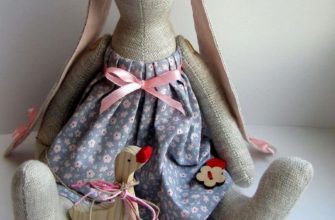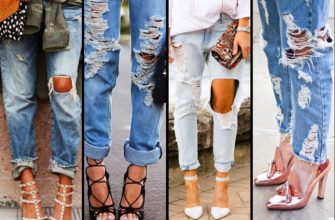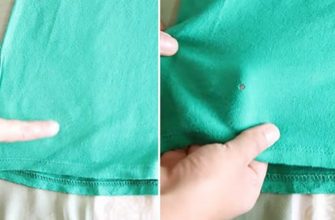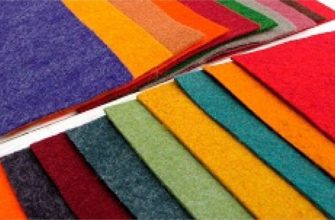A wedding is the most important day in a girl's life, for which she prepares with responsibility. Much attention is paid to the wedding dress and headdress - the veil. This is a symbol of tenderness, purity, innocence and lightness. If the bride's wedding dress is bought in salons, then the veil can be sewn independently.
From a wedding story
The bride's headdress at the wedding changed with each generation. Modern fashion has removed all restrictions and allowed the bride to choose what she will decorate her head with during the wedding. Many refuse to cover their heads with fabric, preferring to decorate their hair with wreaths or tiaras. But most newlyweds still prefer to wear a white lush cloud of a veil, which will emphasize the lightness and purity of the image.

When deciding how to sew a veil with your own hands for a wedding, you must first choose the right style. To do this, take into account the style of the wedding dress and the purpose of using the attribute.
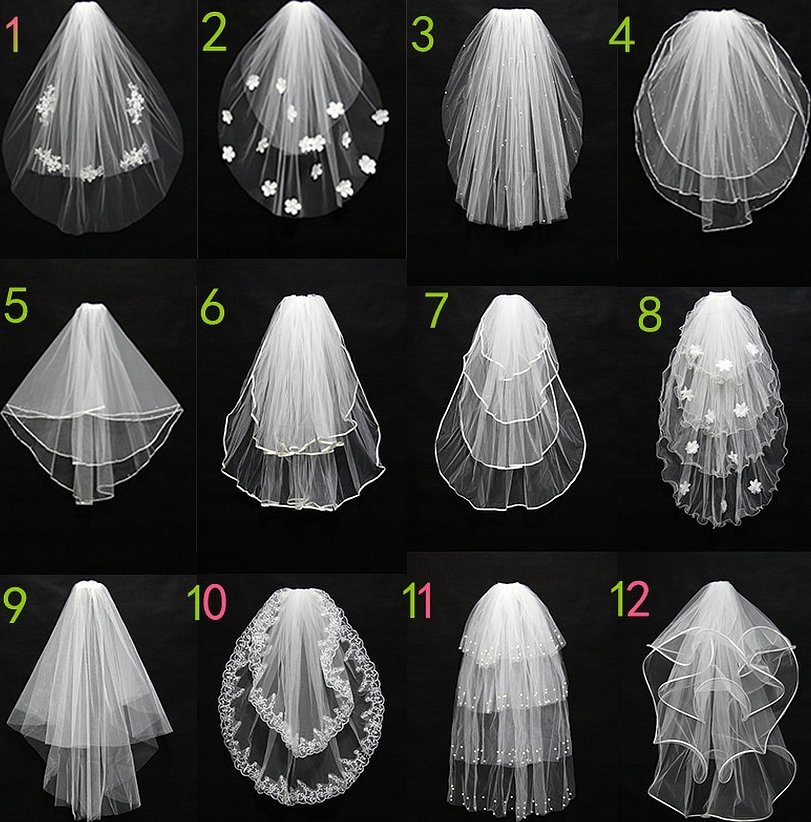
Length of the veil
The bride's headdress can be of the following lengths:
- Above the shoulder. This style is suitable for a registry office ceremony and a modest celebration of the event.
- To the shoulder. An attribute of such length is made in single-layer and double-layer types.
- To the elbow. Most often sewn in two layers and complemented with a veil.
- To the fingertips. This style of veil can be used in combination with any style of wedding dress.
- Wedding. This headdress differs from other styles by its rich trim and decoration. It only goes with elegant long dresses. It is worn for the wedding ceremony.
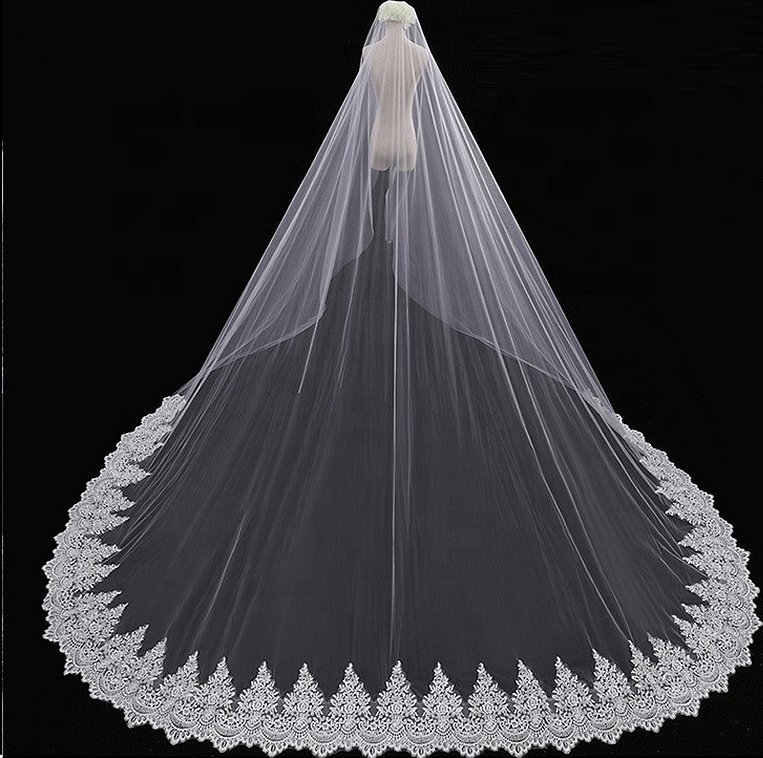
Important! The amount of material directly depends on the length of the product. For a veil at shoulder level, you will need up to 60 centimeters of fabric, at elbow level - 80 centimeters, for the entire length of the arm - 1 meter 10 centimeters. If you plan to sew a wedding veil with a train, you need to buy 2 meters of tulle.
Necessary tools
To make a veil you will need the following tools:
- Scissors.
- Sewing machine.
- Pins.
- White threads.
- Fishing line.
- Needle.
- Invisible.
- Barrette.
The fishing line is used to make assemblies.
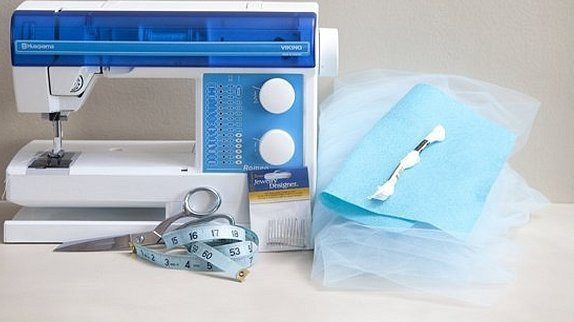
Fabric for veil
If the bride wants the veil to hold its shape, she will need to buy a stiff fabric. A soft material will suit flowing, cascading styles of the wedding veil. The fabric is selected to match the dress.
The most commonly used materials for sewing are:
- Tulle. Can be hard or soft.
- Guipure. A headdress made of this material looks rich and delicate.
- Veil. This is the same tulle, but with a fine mesh.
- Tulle. This material can be bought in a curtain store. There are many white, thin curtains on sale now.
- Organza. The material is rigid and retains the given shape well. The only drawback is that the edges at the cut site fray, so it is recommended to use a French seam during the work, thanks to which the cuts will be stitched inside the seam.
- Lace. This material is most often used to trim veils made of tulle or veil.
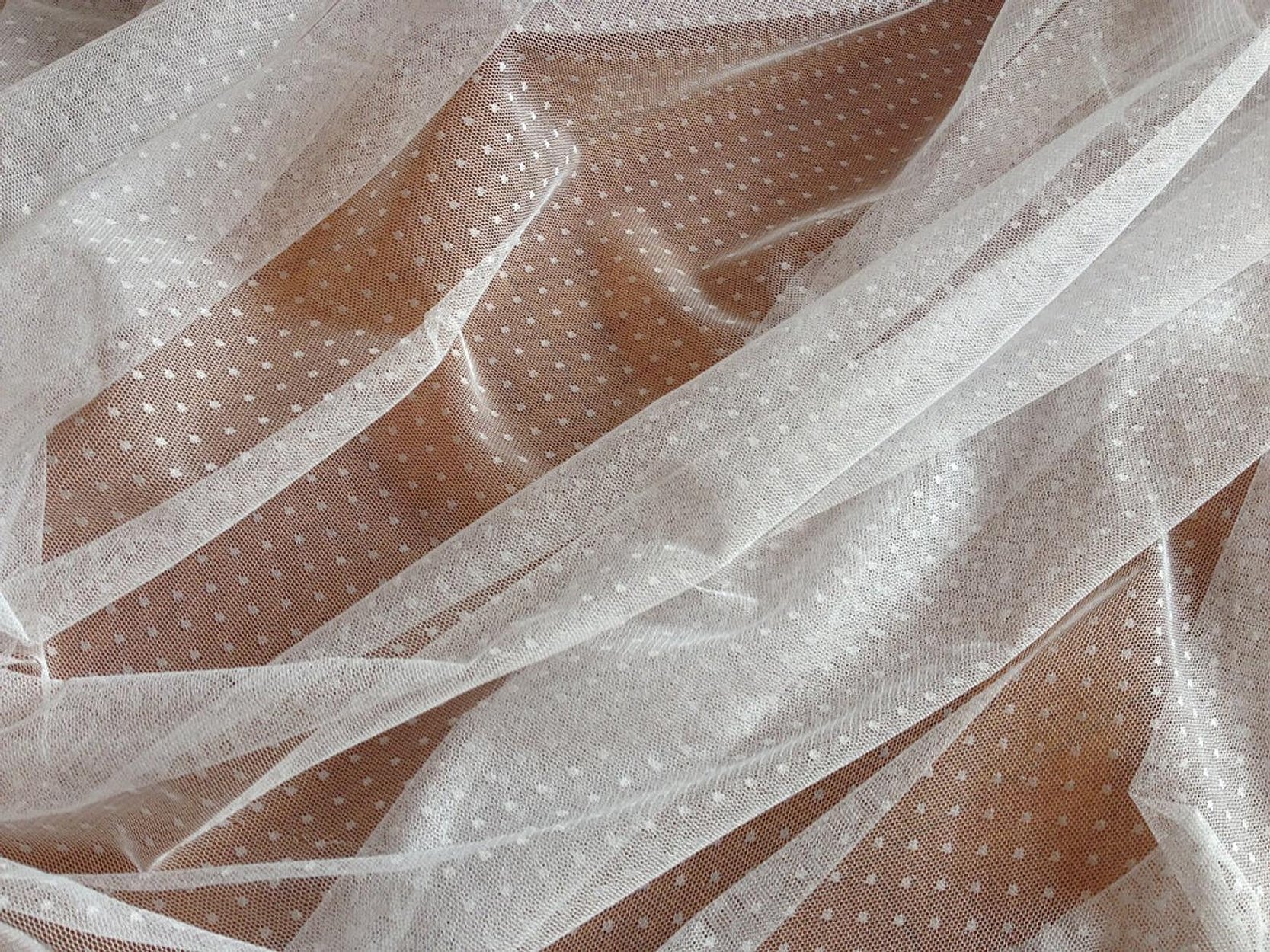
Design and color
Wedding attributes are sewn from white fabrics, choosing a style according to your taste.
- Fantasy. It is made from several layers of fabric, decorated with ribbon or frills along the edges. The bottom edge can be oval or angular.
- Classic. This is a bunch of collected light material that is attached to the lower part of the hairstyle. Most often, such an attribute does not have additional decorations. The veil covers the bride's face only during the ceremonial part of the holiday.
- Wedding. Since a girl must enter the church only with her head covered, the veil must also meet this requirement. The hair is completely covered with fabric, complemented by rich accessories in the form of a wreath, tiara, and hairpins.
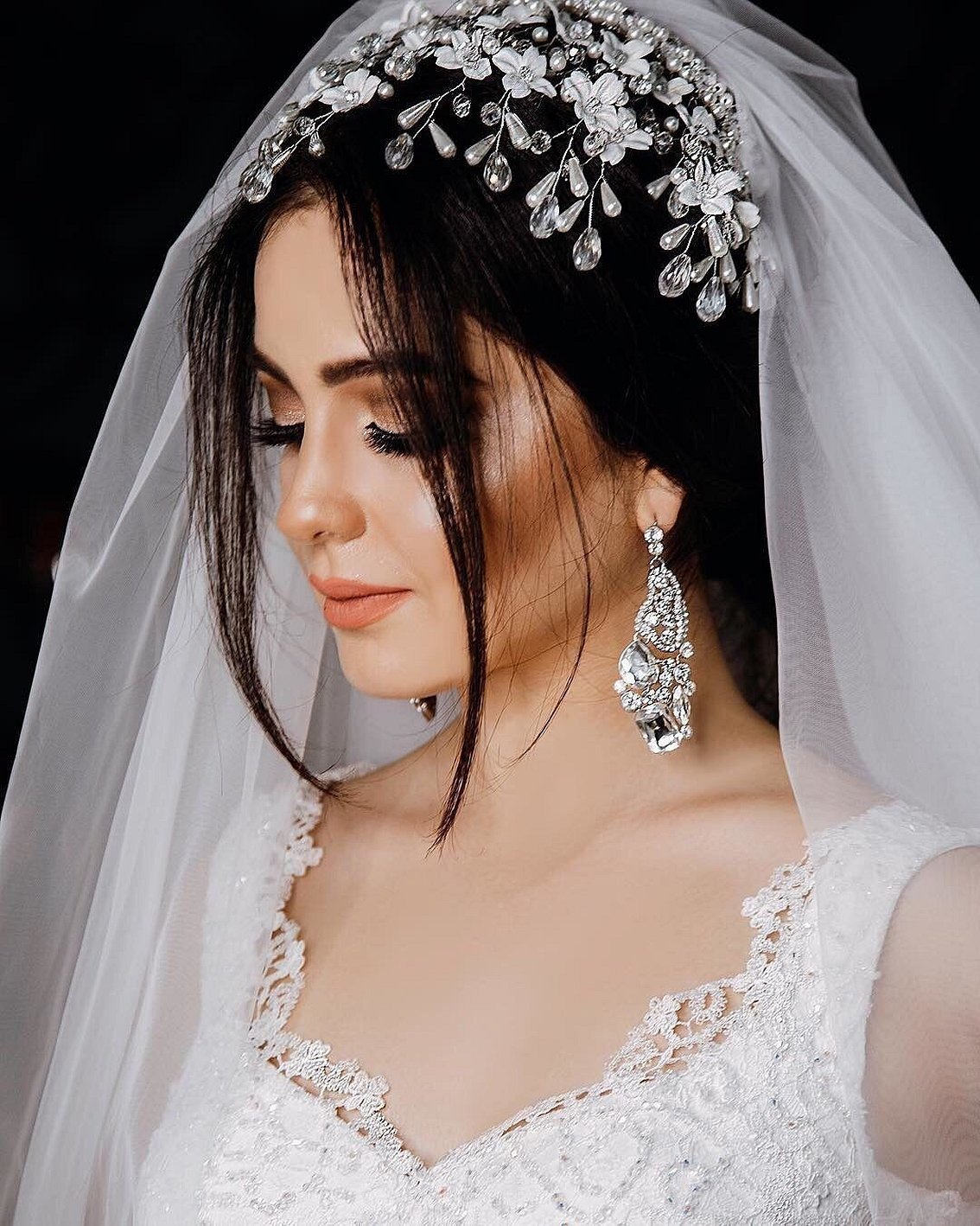
- Mantilla. This piece of jewelry made of thin white material will suit lovers of Spanish or oriental style. It is fixed to the hair with invisible hairpins.
- A veil attached to head ornaments. This type of wedding crown is made of beads, flowers and seed beads. Before being fixed to the bride's head, a veil is sewn onto it.
DIY Wedding Veil
After the bride has decided on the style and length of the wedding headdress, she can begin work. For this, she will need a pattern for the bride's veil. It can have the shape of the following geometric figures:
- Oval.
- Circle.
- Square.
- Rectangle.
- Ring.
Each of the resulting models will have a veil, since all of them have fabric folded into two layers.
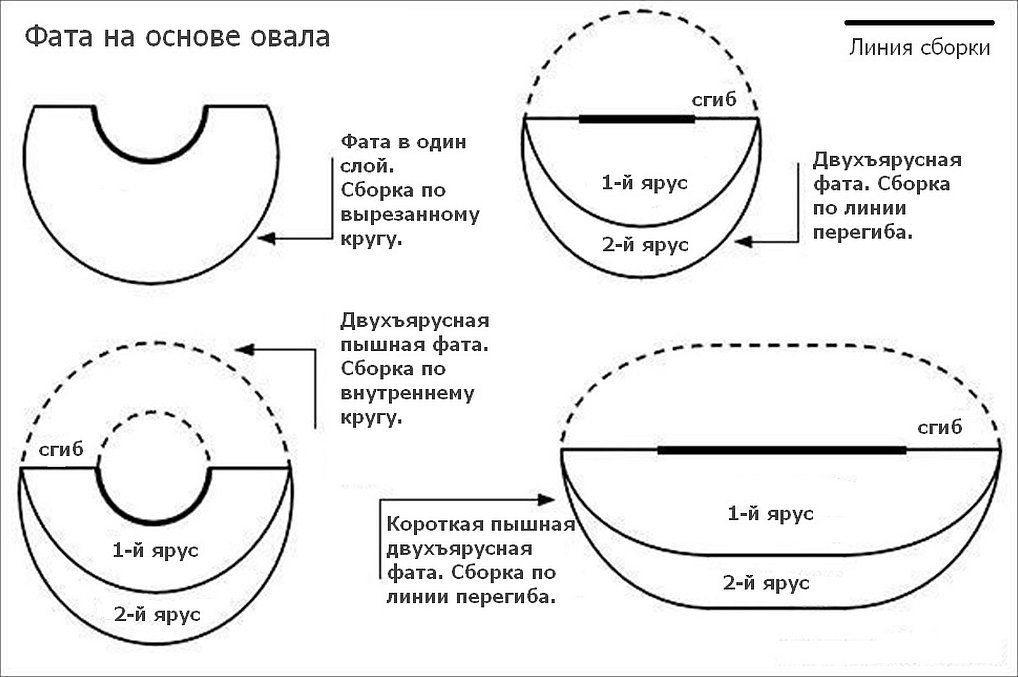
Important! To ensure that the veil is perfectly even, when gathering it, you need to ensure that the distance from the edge to the gathering line is the same on three sides.
How to sew a wedding veil with your own hands
The pattern is prepared as follows:
- For the pattern you will need a large piece of paper or a roll of wallpaper.
- The place where the veil will be gathered is determined on the surface in order to correctly calculate the dimensions.
- The length of the base is noted.
- The length of the veil is outlined.
- The shape of the wedding veil is drawn based on the selected geometric figure.
- The workpiece needs to be folded in four.
- The corner is cut off.
- The pattern unfolds
- Uneven edges are smoothed out.
- The place where the assembly will be sewn is drawn.
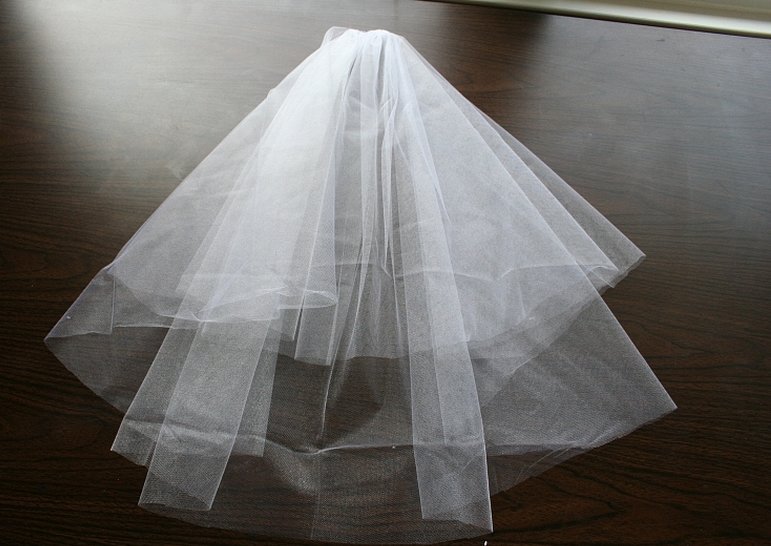
After the pattern is made, the fabric is prepared and the design is transferred to it. Sewing the veil is done according to the following step-by-step instructions:
- On the evenly spread fabric, markings are made along the edge of the pattern.
- The blank is cut out.
- The first fitting is done to determine the highest point of the wedding veil.
- The fabric is folded according to the pattern markings.
- Mark the sides of the veil.
- The middle of the fold, remaining from the sides, is gathered on a thread and pulled together.
- The resulting folds are distributed evenly and fixed in the form of consecutive or opposite folds.
- The place is stitched using a sewing machine.
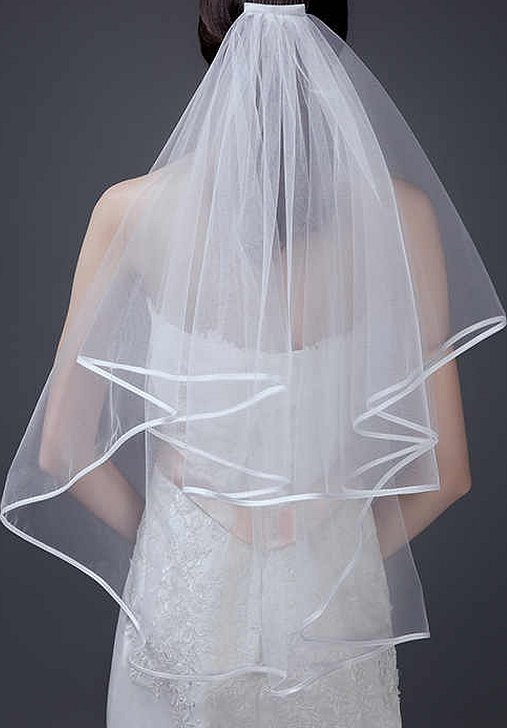
If the material used to make the veil does not fray, then no further operations are required. If desired, the edge can be trimmed with silk ribbon or lace. This must be done carefully, strictly along the edge, so that the seam is not visible.
Veil for a bachelorette party
A veil for a bachelorette party differs from a wedding veil in that it does not necessarily have to be white. Modern girls prefer bright colors. Classic materials such as tulle, tulle, guipure, silk or lace are used to make this attribute.
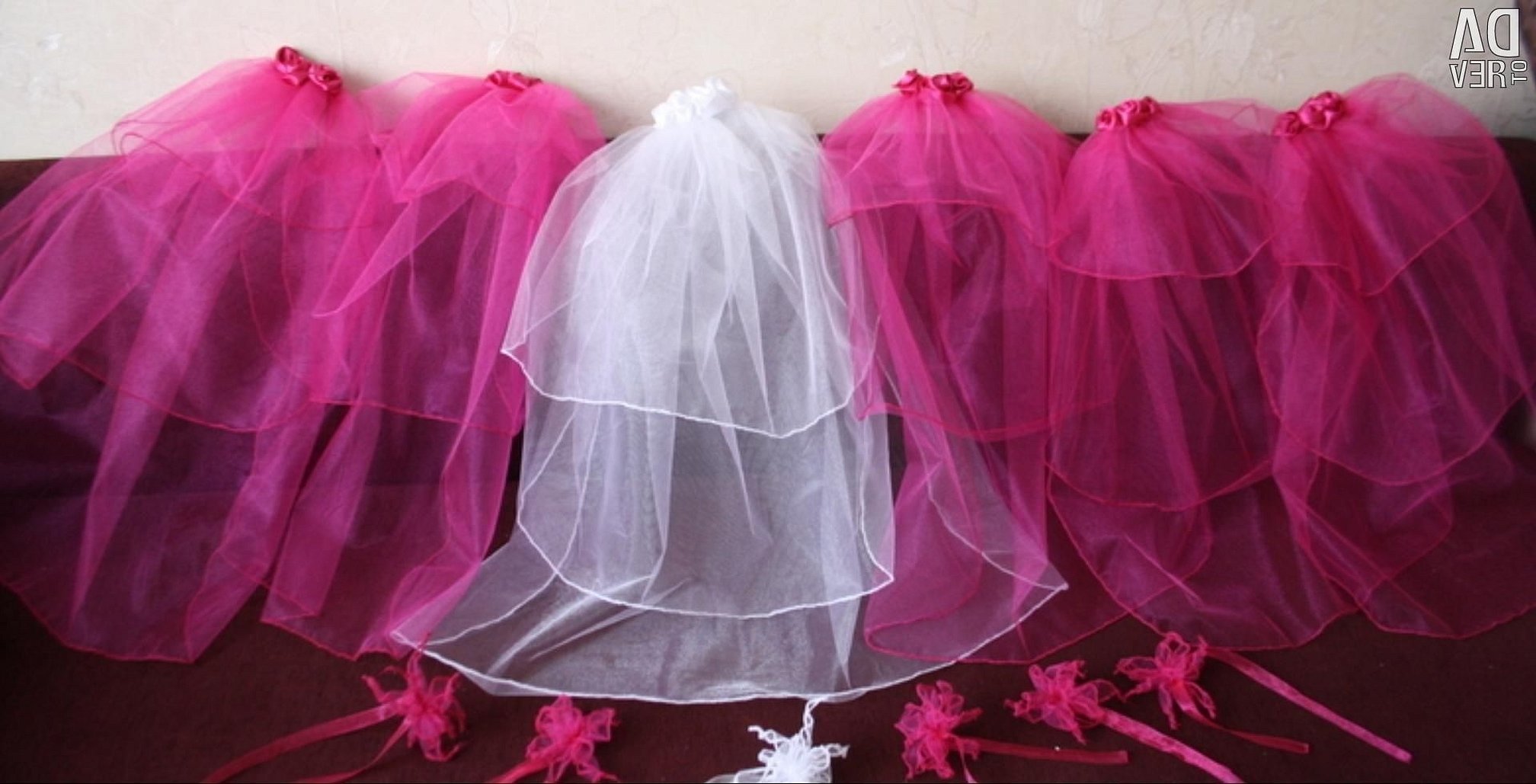
To make a headdress for a bachelorette party, geometric shapes such as a rectangle or a rhombus are used. The work is carried out according to the same step-by-step plan as for a wedding attribute. Silk ribbons, rhinestones, beads, and flowers are used for decoration. In the end, there is nothing left to do but sew the veil to the selected fastening.
Mounting options
There are different ways to attach a veil to your hair, the most popular of which are:
- Hairpins.
- Invisible.
- Automatic hair clip.
Hairpins and invisible hairpins
This type of fastening is suitable for light wedding attributes that are attached to hair gathered in a hairstyle. In order for the veil to hold securely on the hair, it is recommended to bend one leg upwards.
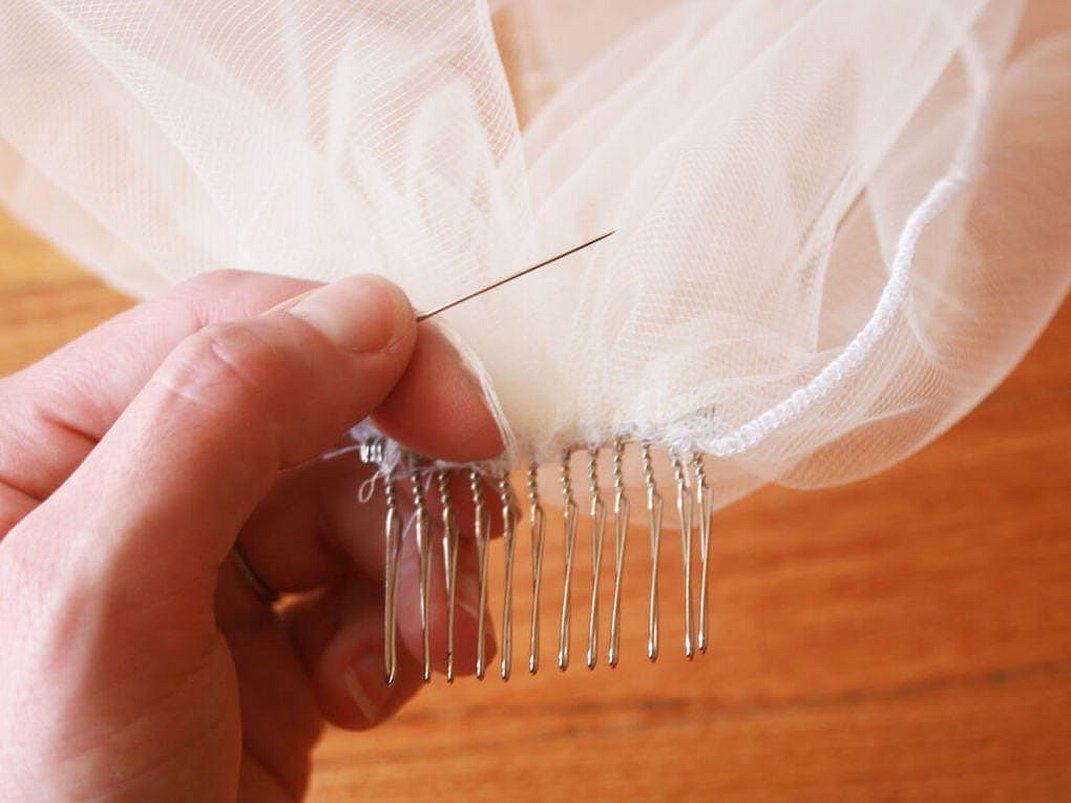
Automatic hair clip
This fastening is recommended for use on hair gathered into a hairstyle. The veil should be small and light. The metal fastening is masked with a bow made of silk ribbon, beads or flowers.
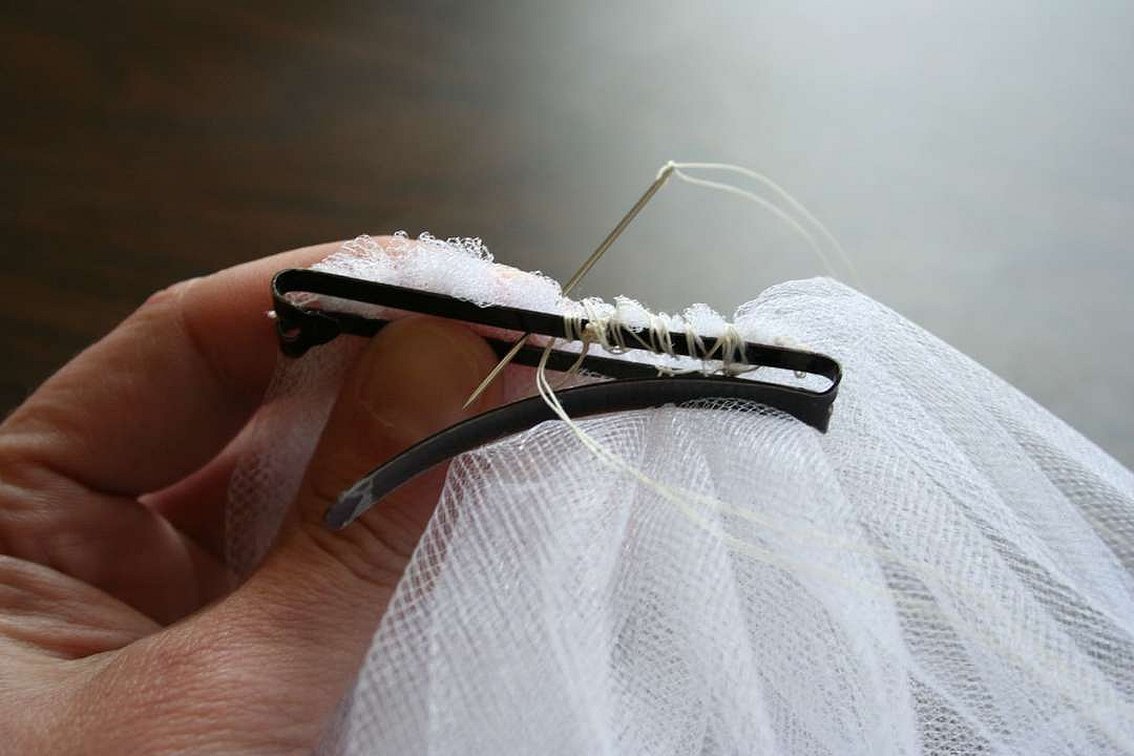
It is easy to cut and sew a veil with your own hands, even a girl who does not have sewing skills can cope with this task. At the same time, such an attribute will be original and unique. The image of the bride will be remembered for a long time.

